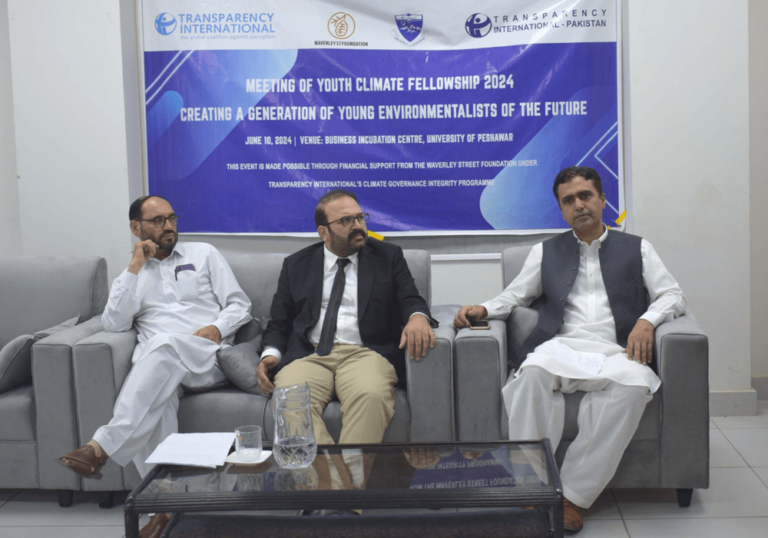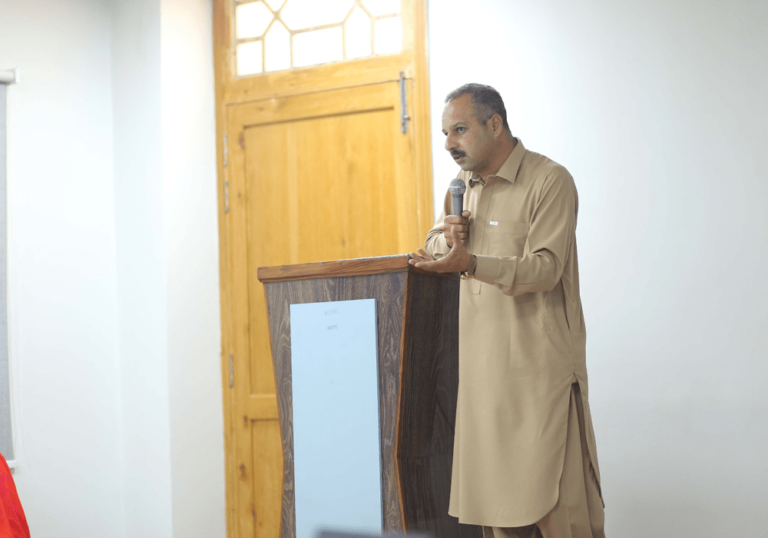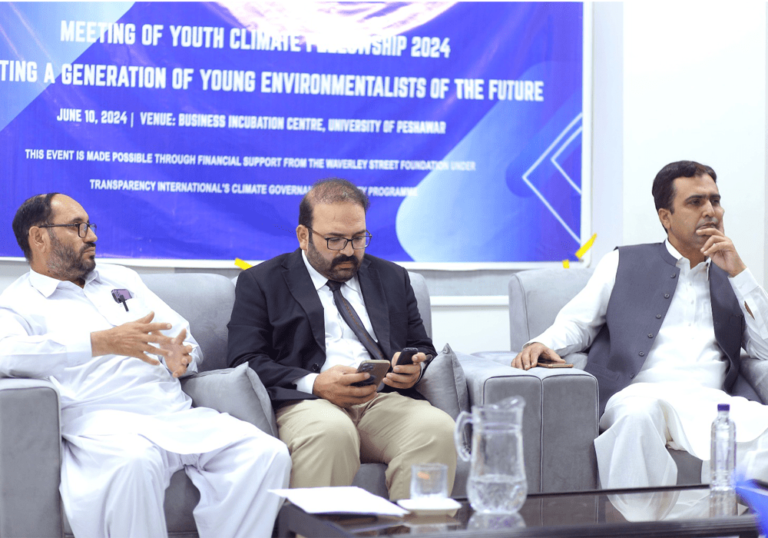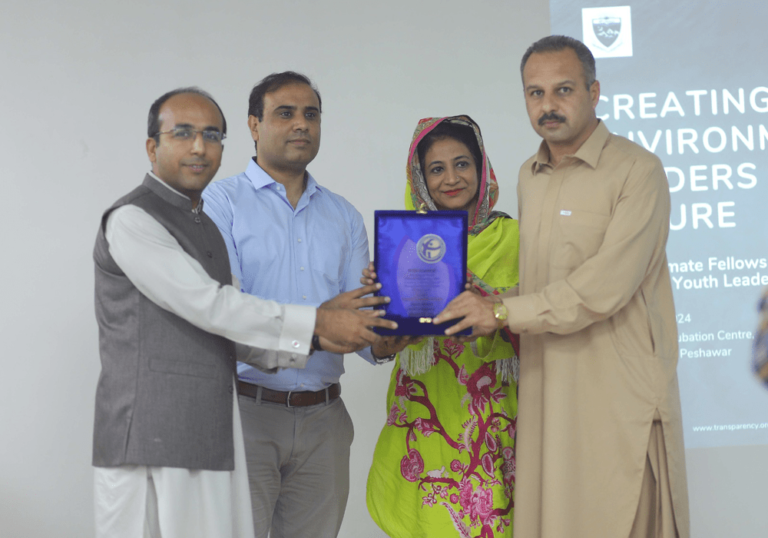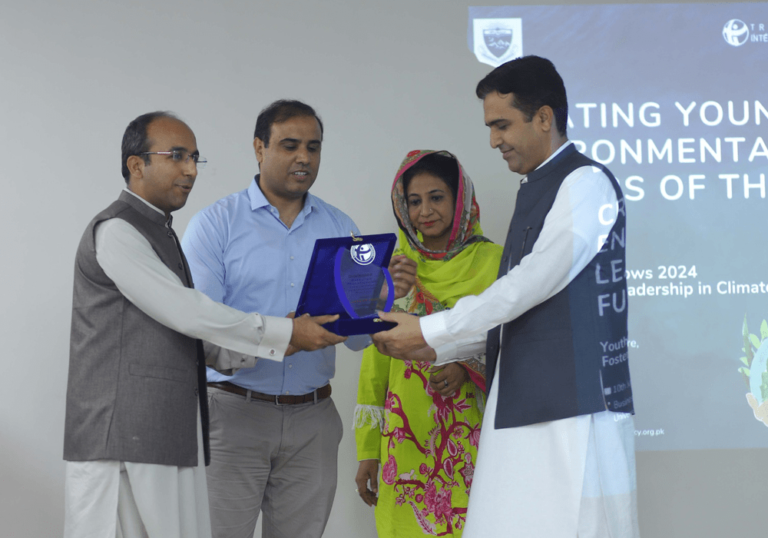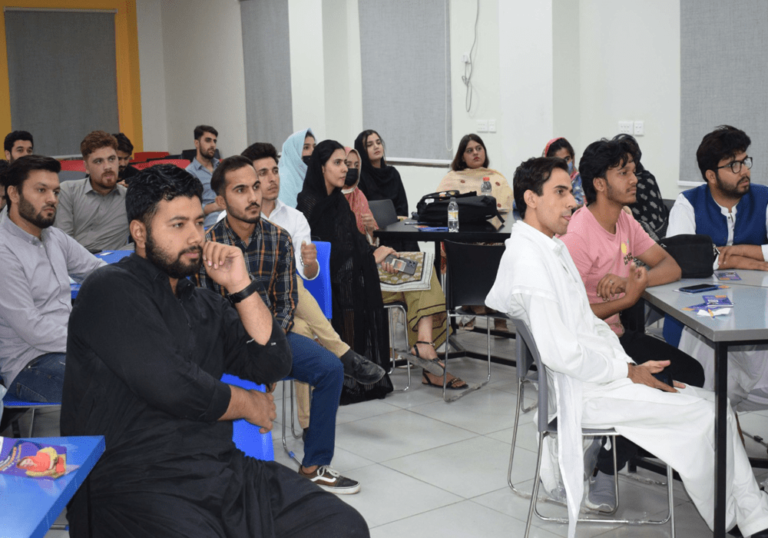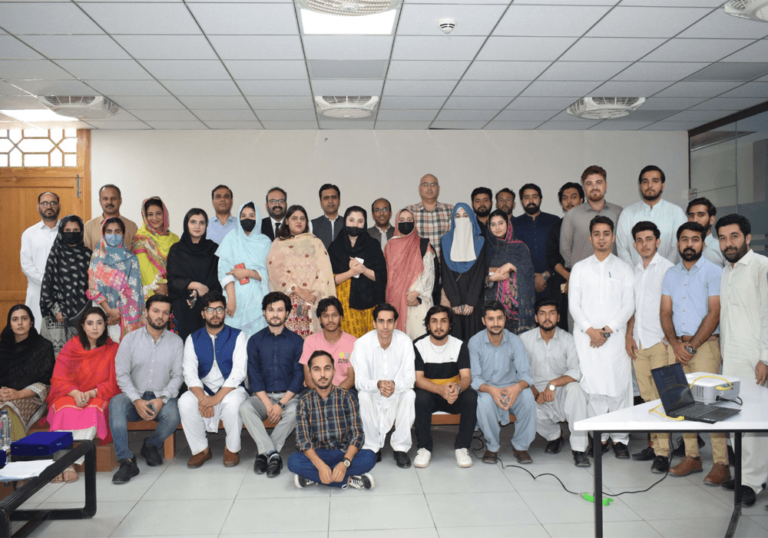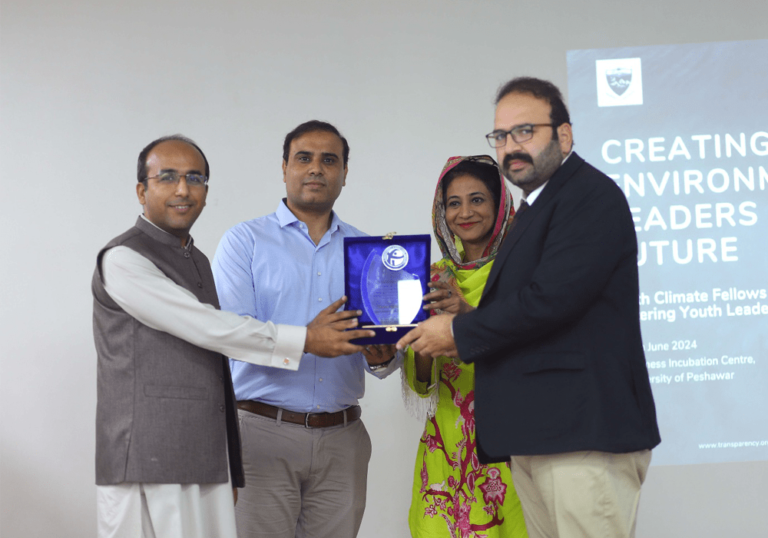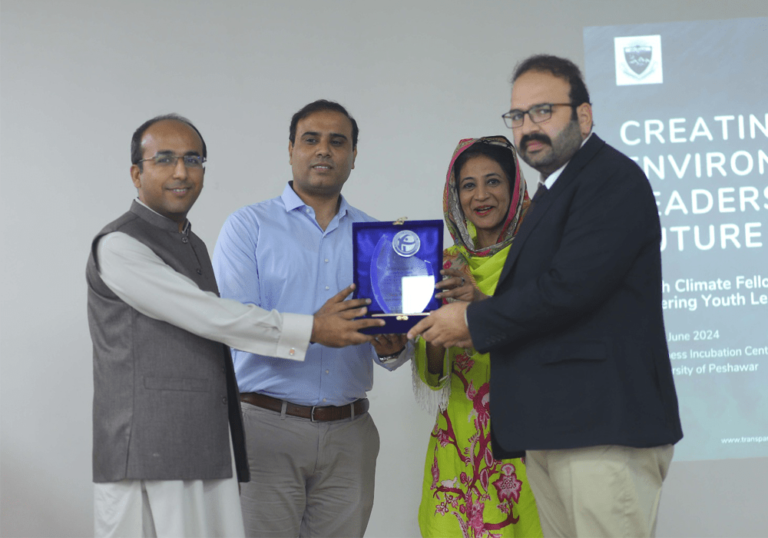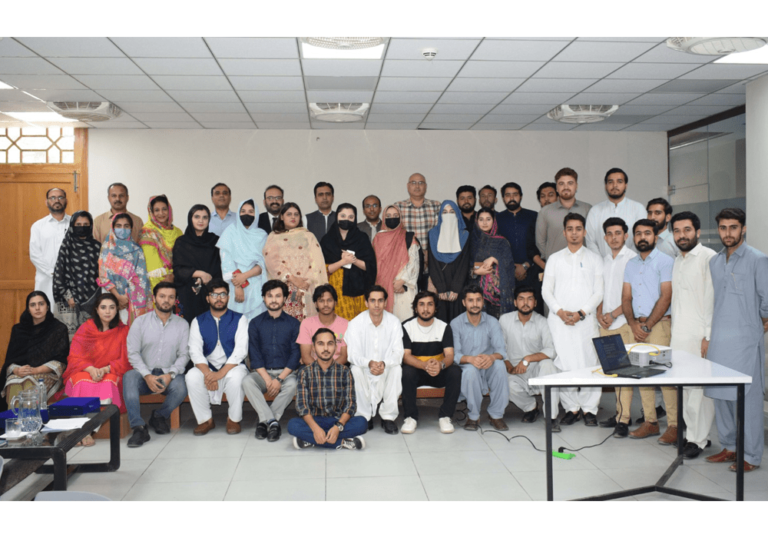- Home
- Meeting of Youth Climate Fellowship 2024: Creating a Generation of Young Environmentalists of the Future – Fostering Youth Leadership in Climate Action
Meeting of Youth Climate Fellowship 2024: Creating a Generation of Young Environmentalists of the Future – Fostering Youth Leadership in Climate Action
Meeting of Youth Climate Fellowship 2024: Creating a Generation of Young Environmentalists of the Future – Fostering Youth Leadership in Climate Action
Date: Monday, June 10, 2024
Venue: Business Incubation Centre, University of Peshawar
Transparency International Pakistan in collaboration with University of Peshawar, held a meeting of youth fellows of Youth Climate Education and Fellowship Programme, at Business Incubation Centre University of Peshawar.
The meeting of Youth Fellowship titled “Creating a Generation of Young Environmentalists of the Future – Fostering Youth Leadership in Climate Action” brought together climate law experts, government stakeholders and 35 fellows of the program.
The event commenced with the recitation of the Holy Quran. Dr. Shakeel Khan, lecturer at the University of Peshawar and the Project Lead, Youth Climate Fellowship, welcomed students and the faculty. He expressed his gratitude to TI Pakistan for empowering students to enhance their skills, acquire knowledge, and contribute meaningfully to combating climate change and promoting transparency, through this fellowship.
Ms. Nasreen Memon, Project Coordinator, Transparency International Pakistan presented a recap of the Youth Climate Education and Fellowship Program. The program started with an orientation in February followed by an interactive session with climate experts in May, where students enhanced their understanding on climate change, climate advocacy, and social accountability. She then discussed the future activities, aiming to increase awareness among students on social accountability tools and climate finance.
Moving on, Mr. Tariq Afghan, Environment Law Expert conducted a session on ‘Climate Challenges and Policy Frameworks’. He discussed, National climate policy frameworks, international agreements and treaties and environmental laws and challenges in Pakistan. During his session, he described the different forms of environmental crimes, particularly highlighting the issue of deforestation in Khyber Pakhtunkhwa. He called upon the youth to take proactive steps to combat this pressing issue and safeguard the region’s natural resources for future generations.
Mr. Sami Ullah Khan, Director General, Environmental Protection Agency (EPA) KP gave the government perspective on tackling climate challenges in KP.
He discussed the Khyber Pakhtunkhwa Climate Change Policy 2022 and how it is addressing the climate challenges in KP. He emphasized that the provincial policy serves as an action plan to encourage youth to actively participate in both policy-making and its implementation. He also provided insights into the EPA’s work that includes enforcing environmental regulations, promoting sustainable development practices, and conducting public awareness campaigns to ensure the preservation of KP’s natural resources.
Lastly, Mr. Samiuallah encouraged fellows to visit the EPA department and observe the work firsthand. He also announced an internship for 5 students in the EPA department to learn more about climate change and climate finance, as well as to support the work of the EPA.
Afterwards, Mr. Kashif Ali, Executive Director TI Pakistan delivered a presentation on ‘’Examination of Financial Mechanisms Supporting Climate Action’’. He provided a climate finance and governance landscape in KP. He shared insights on climate governance in KP including provincial policy and institutional frameworks.
While discussing youth inclusion in policy making and climate action, Mr. Kashif emphasized active youth engagement by participating in local reforestation projects, advocating for sustainable practices in communities, and engaging in educational campaigns about climate change.
Moving on, Mr. Saayad Saadat Jehan, Deputy Director, KP Information Commission spoke on The Khyber Pakhtunkhwa Right to Information Act 2013, and Green Accountability. He highlighted that transparency and access to information are crucial for bridging the gap between planning and action, enabling environmental progress to be tracked effectively. He emphasized that by using this act, youth can ensure climate sensitive budgeting and transparency in it. He said that the youth should use this law as a positive tool because this law empowers them to monitor the public institutions. He said that most of the citizens are not aware of climate change and its effects. The relevant institutions must work on awareness raising to address the climate challenges effectively.
Towards the end, a member of the Youth Climate Fellowship program at the University of Peshawar, Inkhsar, shared their journey as a youth member of the program. He said that as a fellow in the Climate Youth Fellowship, we are deepening our understanding of climate change and its impacts. He highlighted that fellowship continues to provide opportunity to develop and enhance their knowledge on climate change. They also shared their aim to highlight KP’s climate challenges as a vulnerable region at different forums including upcoming COP, with the goal of bringing global attention to Pakistan’s climate impacts.


